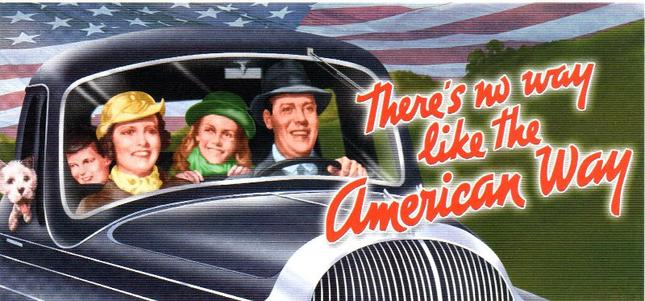Some people you just can’t contain. They’re originals, iconoclasts, unique individuals who, before you know it, have left their thumbprints, their word-prints, their lifetime achievements all over town.
That’s how you place Jeffrey Gildenhorn — restaurant owner, boxing commissioner, businessman small and big, sometime politician, candidate for mayor — in the spots and spaces of Washington.
Gildenhorn died June 26 at the age of 74 after a choking episode at the Palm, where he was a highly regarded regular.
There is some sad irony in the passing. Among the many marks he left on the city, Gildenhorn was the creator of the American City Diner on a busy upper Wisconsin Avenue block of tony Chevy Chase.
He was a native Washingtonian to the core, raised and educated and doing business in resonant places: Coolidge High School, Bullis School, Georgetown University, B’nai Israel Congregation. He owned and/or operated six businesses, including Circle Liquors (a family business), the Fishery restaurant and the Italian restaurant Rossini’s.
Being a businessman naturally streamed him into the culture of D.C. politics, where he became a friend of Mayor (for Life) Marion Barry. He was first and foremost a Democrat and an activist. Under Barry, he was D.C. boxing and wrestling commissioner, bringing two world-championship boxing matches to the city. He loved baseball and the old Washington Senators, but also attempted to buy the Atlanta Braves from Ted Turner.
Of course, he ran for mayor, too. That was in 1978, when there was a big and unwieldy field that including the winner, Anthony Williams, one of D.C.’s more effective mayors but not exactly a political natural. While Gildenhorn was visible in the city in all sorts of endeavors, he had never run for office, and so wasn’t given much of a chance — which turned out to be prophecy, in the sense that he didn’t win.
But it also turned out that GIldenhorn, a bachelor, was not shy about politics. He was a big presence, and took things seriously, proposing that prostitution be legalized (a not unreasonable proposition in the Western world).
He also was having the time of his life. I seem to recall him at the Fourth of July parade that year in a Shriner’s hat. He also, in the end, donated money to Williams’s campaign. He used the American City Diner as headquarters, which was not much of a stretch, since Washington pols and insiders and outsiders had already discovered it as a gathering place.
His American City Diner was inspired. One report quoted an oral history in which Gildenhorn said: “a vision came to me out of the blue, to bring a 1950s diner … here.”
When you think about this, that doesn’t sound like much of a big deal. There are two diners alone in Adams Morgan. But diners — while being trendy periodically in urban areas — are not a natural fit. They’re the residue of all these small towns that build them near railroad tracks (there’s a terrific one in Honesdale, Pennyslvania, my wife’s hometown).
But Chevy Chase and the commercial stretch leading to Chevy Chase Circle is upper Northwest territory, lined with tucked-away real estate and fronted by Connecticut Avenue with its restaurants, markets and movie theaters showing independent films.
Diners? Not so much.
But Gildenhorn thought it was perfect. With that billboard of a family with Dad at the wheel and the motto, “There’s no way like the American Way,” it was a welcome mat and a magic carpet to mid-20th-century Middle America.
The menu was strictly and deliciously heartburn all the way: breakfast anytime, Jewish confections like matzo ball soup (a nod to his upbringing), burgers, hot dogs, sides of fries and always a side of nostalgia. At classic-movie nights, diners could watch such films as “Casablanca,” “On the Waterfront” and “The Bridge on the River Kwai.” And every table had a jukebox.
The jukebox selections went from Elvis to Frankie Lymon and the Teenagers to Sinatra to Gladys Knight to Dion and the Belmonts (and his “Runaround Sue”) to the Supremes and, God help us, Sammy Davis Jr.’s “The Candy Man.” When you dropped in a quarter or a nickel — hard to recall — and heard the Platters announce that, “Oh, yes, I’m the great pretender,” you were in time and out of time in the 1950s.
Gildenhorn had his own ambiance that he trailed behind him, and that remains still. He was an original, to be sure — original ideas, restless and serious — but he was also the politician, the businessman, the Washingtonian as showman. There was a little bit of the circus about him.
Which is not to say that Gildenhorn — a Democrat after all — cared for another politician turned president and once showman. During the campaign, the billboard at the American City Diner carried such slogans as “Humpty Trumpty will have a good fall,” according to one account.
Maybe Gildenhorn should have run for president.


